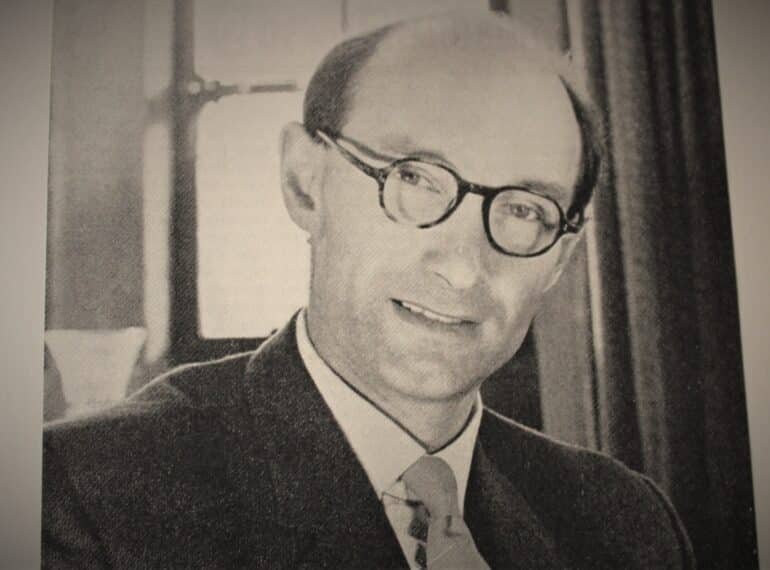
Queen Elizabeth’s School today remembers Tim Edwards, Headmaster from 1961 to 1983, who died on Friday at the age of 98.
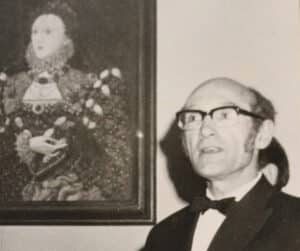 Timothy Bracey Edwards took over the headship from longstanding Headmaster Ernest Jenkins (1930–1961). After leading the School as a grammar for ten years, he then steered it through a major expansion as it became a comprehensive, which it remained during the rest of his 22-year tenure.
Timothy Bracey Edwards took over the headship from longstanding Headmaster Ernest Jenkins (1930–1961). After leading the School as a grammar for ten years, he then steered it through a major expansion as it became a comprehensive, which it remained during the rest of his 22-year tenure.
Headmaster Neil Enright said: “After serving at Bletchley Park during the latter stages of the Second World War and then establishing a successful teaching career, Tim came to QE at the start of the 1960s – a period which saw huge change in the country and in the national education system. He had a long headship and was a figure of consequence, not only at QE, but also locally, serving on the Education Committee of Barnet Council.
“He played a significant role in the School’s modern history, and many will remember his courteous nature and kindness. I offer my sincere condolences to his family on their loss.”
The 1981 School Captain, Andy Porteous, also paid tribute to his Headmaster: “He was a man of great compassion and principles.”
Educated at Clifton College in Bristol, Mr Edwards joined the RAF after leaving school in July 1943. His early plans to become a pilot were thwarted when a problem with his eyesight was discovered.
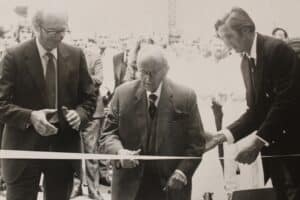 Having taken German at Higher Certificate level at school (the precursor to A-levels), he was sent to Bletchley Park, where his work involved decoding German weather reports from Balkan airfields. Interviewed about his experiences in 2020 for a Bletchley Park podcast published the following year, he was characteristically modest: “I don’t think my contribution to the war effort was anything more than negligible, if as much as that!”
Having taken German at Higher Certificate level at school (the precursor to A-levels), he was sent to Bletchley Park, where his work involved decoding German weather reports from Balkan airfields. Interviewed about his experiences in 2020 for a Bletchley Park podcast published the following year, he was characteristically modest: “I don’t think my contribution to the war effort was anything more than negligible, if as much as that!”
He served as an interpreter in Germany after the end of hostilities, recalling a 20-minute drive through Hamburg during which he did not see a single building that was untouched by Allied bombing.
On being ‘demobbed’ in 1946, he took up the place that he had previously been offered at The Queen’s College, Oxford, where he read German, with subsidiary French.
Following a brief period of teaching at Felsted School in Essex, he spent ten years as Assistant Master at Manchester Grammar School, before arriving at Queen’s Road, where he remained until his retirement at Christmas 1983. He is pictured, top, on his appointment in 1961.
Writing for The Elizabethan in April 1963, Mr Edwards paid tribute to his predecessor in describing the QE that he had taken over two years before: “Queen Elizabeth’s was a good school first and foremost because Jenkins had left it like that.”
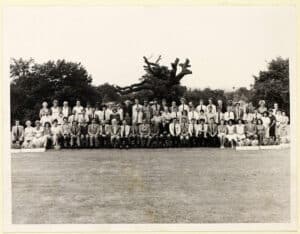 In his new history of the School, Queen Elizabeth’s School: 1573–2023, Dr John Marincowitz (Headmaster, 1999–2011) describes Tim Edwards as “a man of his time”. An advocate of reform, he was an enthusiastic supporter of the national moves towards replacing grammar and secondary modern schools with comprehensives. QE’s first comprehensive intake arrived in September 1971 – six forms replacing the grammar school’s three-form entry.
In his new history of the School, Queen Elizabeth’s School: 1573–2023, Dr John Marincowitz (Headmaster, 1999–2011) describes Tim Edwards as “a man of his time”. An advocate of reform, he was an enthusiastic supporter of the national moves towards replacing grammar and secondary modern schools with comprehensives. QE’s first comprehensive intake arrived in September 1971 – six forms replacing the grammar school’s three-form entry.
Dr Marincowitz wrote: “It was to his considerable credit that Edwards virtually doubled the size of the School’s roll, the capacity of its accommodation and the number of teaching staff. Edwards praised the extent of government funding, stating that ‘nothing has been spared in equipping the school for its new role’.” The picture above shows Mr Edwards, left, at the opening ceremony of the Fern Building in 1974.
Dr Marincowitz described Mr Edwards’ management style as “consultative, participative and democratic”. The group photograph shows him with his staff in July 1983.
In the Bletchley Park interview, Mr Edwards explained why he remained at QE for more than half his career: “Having been myself interested in the comprehensive concept, I stayed on: I thought, you know, if I had advocated comprehensive education, I should stay and see it through, so I did.” Under Mr Edwards’ successor, Eamonn Harris (Headmaster, 1984-1999), the School reverted to a fully selective admissions policy in 1994.
Among other reforms Mr Edwards introduced was the abolition of school on Saturdays at QE; the establishment of an elected council to hear pupils’ views; and the modernisation of the curriculum. FQE (The Friends of Queen Elizabeth’s) was established during his headmastership, in 1966. He also oversaw the School’s 400th anniversary celebrations in 1973.
Married to Pat, who pre-deceased him, he had five children.

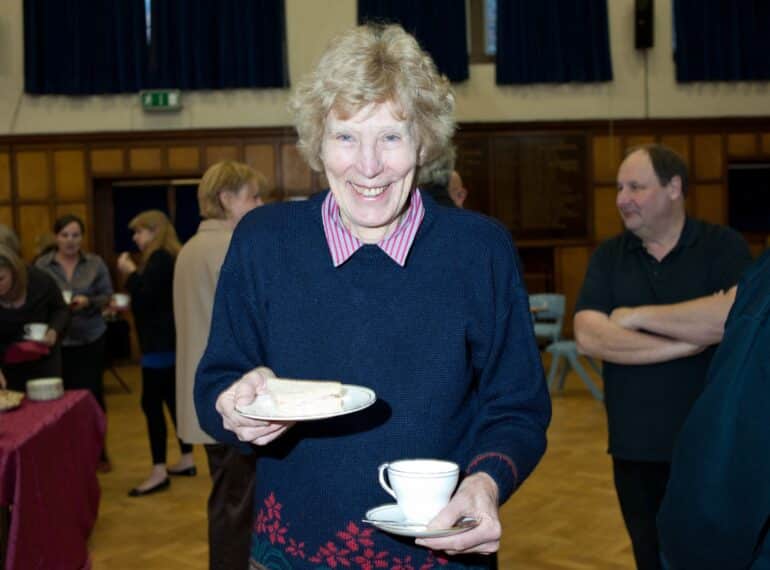
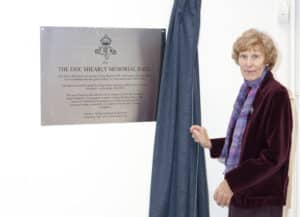 Diane’s association with QE extended back to 1985, when her eldest son, Andrew (Andy), joined the School, followed two years later by his brother, Chris. She quickly became involved in the work of The Friends of Queen Elizabeth’s, serving as Secretary for some 35 years, until retiring earlier this summer.
Diane’s association with QE extended back to 1985, when her eldest son, Andrew (Andy), joined the School, followed two years later by his brother, Chris. She quickly became involved in the work of The Friends of Queen Elizabeth’s, serving as Secretary for some 35 years, until retiring earlier this summer.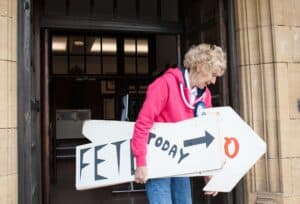 “Over several decades, she brought great energy, vigour and dedication to all that she did, and my colleagues and I are immensely grateful for her inspiring and steadfast support.
“Over several decades, she brought great energy, vigour and dedication to all that she did, and my colleagues and I are immensely grateful for her inspiring and steadfast support.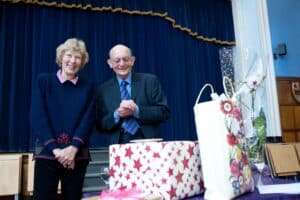 Those who have known her many years include Barrie Martin, the School’s longstanding former Chairman of Governors, who continues in his role as FQE Director. Speaking at a special event at this year’s Founder’s Day marking his retirement from the Governing Body, he credited Diane with getting him involved in the work of the Friends. This, he said, led to the then Headmaster Eamonn Harris (1984–1999) summoning him to the Governing Body.
Those who have known her many years include Barrie Martin, the School’s longstanding former Chairman of Governors, who continues in his role as FQE Director. Speaking at a special event at this year’s Founder’s Day marking his retirement from the Governing Body, he credited Diane with getting him involved in the work of the Friends. This, he said, led to the then Headmaster Eamonn Harris (1984–1999) summoning him to the Governing Body.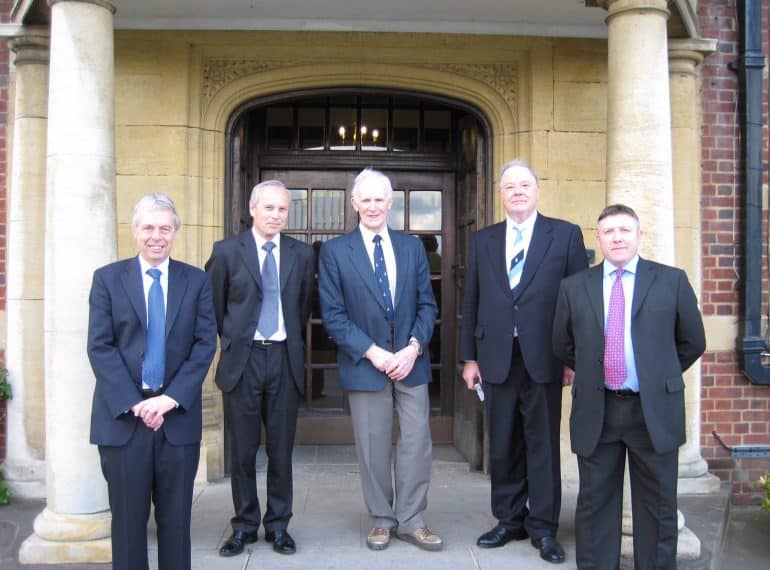
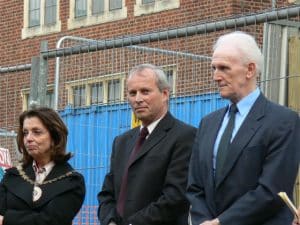 Mr Enright’s predecessor, Dr John Marincowitz, Headmaster from 1999 to 2011, said: “I am saddened to hear of Sid Clark’s death. His enormous contribution as an educator over three decades in the Chemistry labs benefitted many boys. It was however, as Trustee and Governor for much of my Headship that I appreciated Sid most. He gave dedicated service as treasurer, securing FQE’s finances at a time of rapid growth and challenging capital projects. As Governor, he provided wise counsel and stalwart support.
Mr Enright’s predecessor, Dr John Marincowitz, Headmaster from 1999 to 2011, said: “I am saddened to hear of Sid Clark’s death. His enormous contribution as an educator over three decades in the Chemistry labs benefitted many boys. It was however, as Trustee and Governor for much of my Headship that I appreciated Sid most. He gave dedicated service as treasurer, securing FQE’s finances at a time of rapid growth and challenging capital projects. As Governor, he provided wise counsel and stalwart support.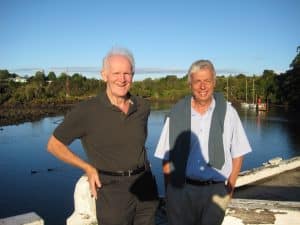 Mr Houston, who remained in touch with Mr Clark and visited him in New Zealand (pictured left), where he moved in 2008, said: “Sid was so proud of the School’s outstanding achievements but it is true that he had a huge part to play in making this possible. He never sought any credit for his many contributions, but we should acknowledge with gratitude all he did over many years. He leaves a wonderful legacy.”
Mr Houston, who remained in touch with Mr Clark and visited him in New Zealand (pictured left), where he moved in 2008, said: “Sid was so proud of the School’s outstanding achievements but it is true that he had a huge part to play in making this possible. He never sought any credit for his many contributions, but we should acknowledge with gratitude all he did over many years. He leaves a wonderful legacy.”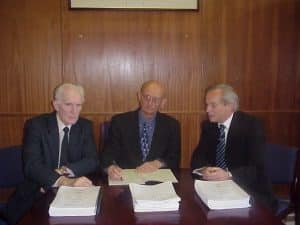 His total commitment to the School did not diminish in the slightest following his retirement in 1987. After QE opted out of local authority control in 1989, he became a Governor, serving for a period as Vice Chairman, and he unfailingly attended all School functions. He worked on a number of sub-committees and was an influential figure in the School regaining selective status in 1994.
His total commitment to the School did not diminish in the slightest following his retirement in 1987. After QE opted out of local authority control in 1989, he became a Governor, serving for a period as Vice Chairman, and he unfailingly attended all School functions. He worked on a number of sub-committees and was an influential figure in the School regaining selective status in 1994.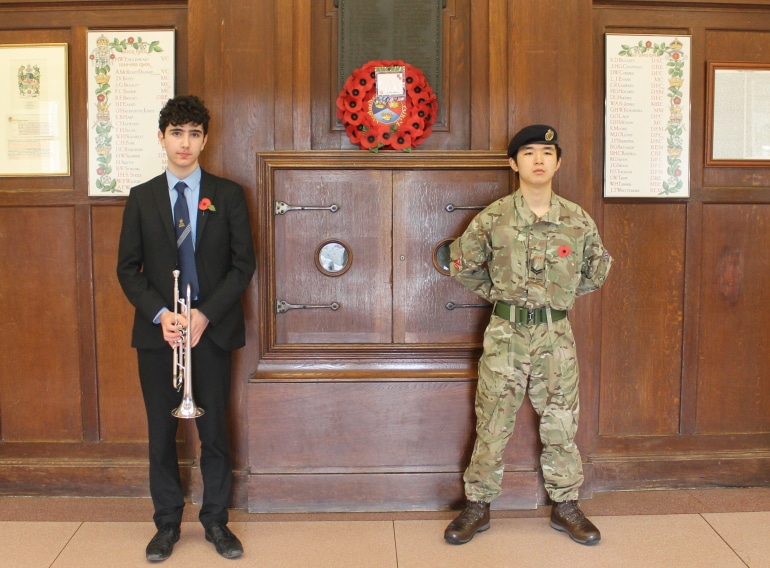
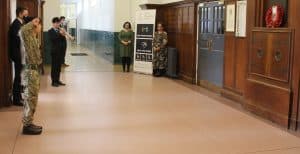 When boys fell silent at 11am on 11th November it was in their classrooms, while a smaller-than-usual wreath-laying ceremony took place at the World War I Memorial outside the Main School Hall.
When boys fell silent at 11am on 11th November it was in their classrooms, while a smaller-than-usual wreath-laying ceremony took place at the World War I Memorial outside the Main School Hall.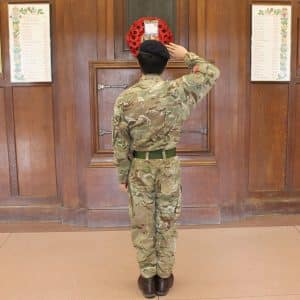 The bugler who played the Last Post and Reveille at the School ceremony was Theo Mama-Kahn, of Year 11, who is studying GCSE Music. The cadet laying a wreath was Lucas Lu, of Year 12.
The bugler who played the Last Post and Reveille at the School ceremony was Theo Mama-Kahn, of Year 11, who is studying GCSE Music. The cadet laying a wreath was Lucas Lu, of Year 12.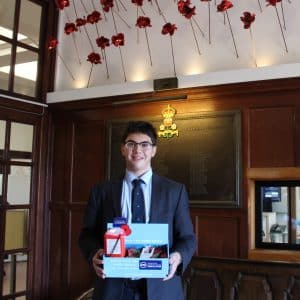 To ensure boys of all ages understood the significance of the occasion, a PowerPoint presentation detailing the history of the day was sent to form tutors to spark discussion among the pupils. It explained the importance of poppies – the first flowers to bloom on the World War I battlefields of Belgium and France – and included the famous poem they inspired, John McCrae’s In Flanders fields. Boys were also invited to watch a
To ensure boys of all ages understood the significance of the occasion, a PowerPoint presentation detailing the history of the day was sent to form tutors to spark discussion among the pupils. It explained the importance of poppies – the first flowers to bloom on the World War I battlefields of Belgium and France – and included the famous poem they inspired, John McCrae’s In Flanders fields. Boys were also invited to watch a 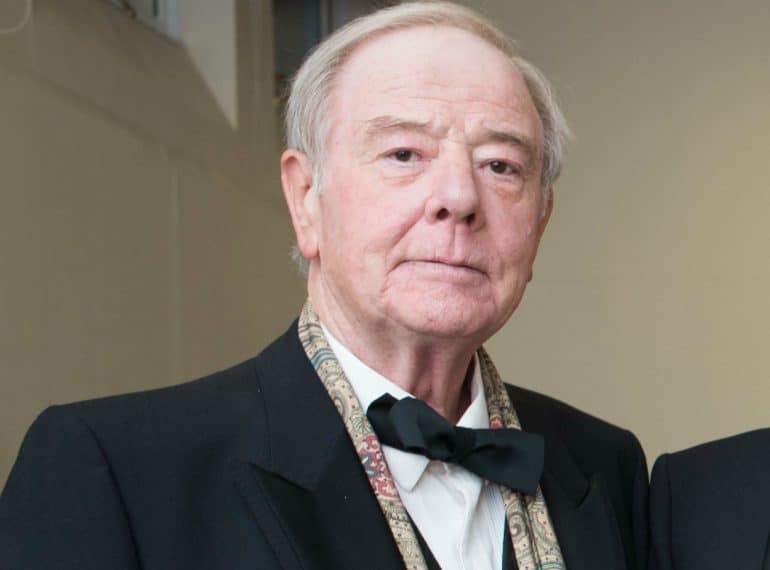
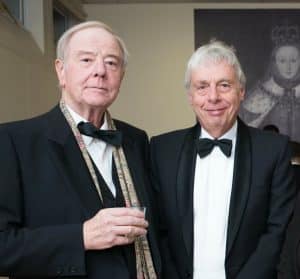 By the time he retired in 1999, QE had become one of the finest state grammar schools in the country, providing a platform from which his successors were able to take the School to the position of pre-eminence it enjoys today.
By the time he retired in 1999, QE had become one of the finest state grammar schools in the country, providing a platform from which his successors were able to take the School to the position of pre-eminence it enjoys today.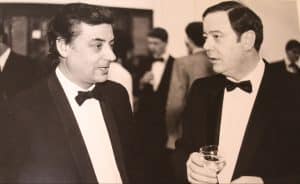 He set to work with his customary energy, and the transformation quickly began, with one of his first measures being to ensure boys stayed on site at lunchtime while the behavioural issues were tackled.
He set to work with his customary energy, and the transformation quickly began, with one of his first measures being to ensure boys stayed on site at lunchtime while the behavioural issues were tackled.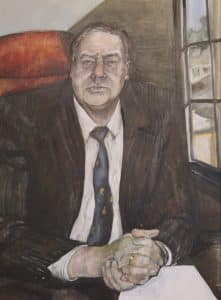 Mr Harris took a holistic approach to the transformation of the School, combining vision and drive with clarity of thought, a willingness to try new ideas and considerable attention to detail. While there was certainly a focus on teaching and monitoring of performance, ostensibly smaller matters were not neglected, either: uniform policy was, for example, properly enforced, and the School campus was better maintained, with shrubs and flowers planted.
Mr Harris took a holistic approach to the transformation of the School, combining vision and drive with clarity of thought, a willingness to try new ideas and considerable attention to detail. While there was certainly a focus on teaching and monitoring of performance, ostensibly smaller matters were not neglected, either: uniform policy was, for example, properly enforced, and the School campus was better maintained, with shrubs and flowers planted.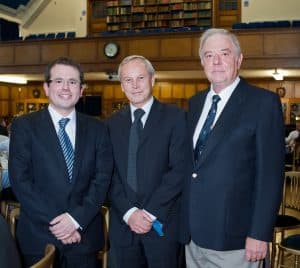 Following an Ofsted inspection in 1995, the Education Secretary, Gillian Shepherd, wrote to Mr Harris informing him that the inspectors had found QE to be “an outstandingly successful secondary school”.
Following an Ofsted inspection in 1995, the Education Secretary, Gillian Shepherd, wrote to Mr Harris informing him that the inspectors had found QE to be “an outstandingly successful secondary school”.